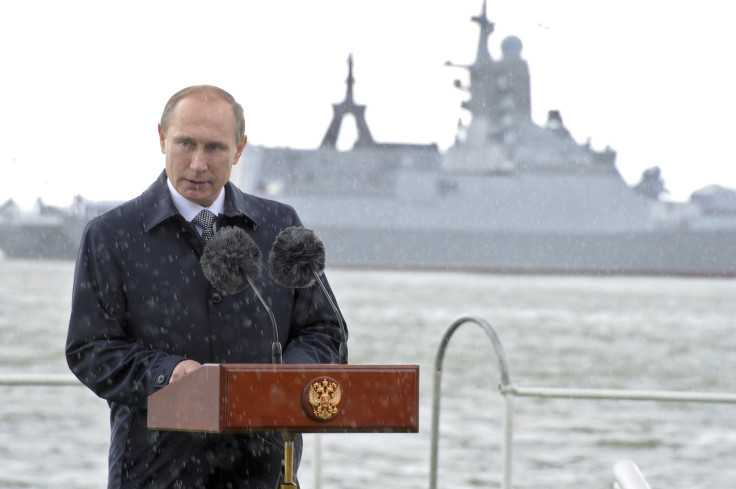Russia Building 'Arc Of Steel' From Arctic To Mediterranean, NATO Commander Says

Russia has announced a new “arc of steel” from the Mediterranean to the Arctic as a way to challenge NATO's authority in the region and continues to be the most dangerous threat in Europe, Mark Ferguson, Navy admiral and NATO’s Allied Joint Force commander in Italy, said Tuesday. NATO’s response to Russia's continued aggression in Ukraine -- and most recently in Syria -- will have to involve adaptation and assurance to members of the alliance.
“This remilitarization of Russian security policy is evident by the construction of an ‘arc of steel’ from the Arctic to the Mediterranean,” said Ferguson, echoing the famous iron curtain remark from the Cold War era. “Russia has introduced advanced air defense, cruise missiles systems and new platforms.”
Ferguson said Russia’s war with Georgia in 2008, the annexation of Crimea in 2014 and the ensuing war in eastern Ukraine have demonstrated Russia’s willingness to use military force. Russia has denied any direct military involvement in Ukraine. The war between Russian-backed separatists and Ukrainian government forces has left more than 8,000 people dead and more than 1.4 million displaced.
#Russia has stationed in the eastern #Mediterranean several #warships capable of launching #guidedmissiles - #Syria pic.twitter.com/3N8ZY8q4S7
— Juha Wihersaari (@JittiShodan) October 6, 2015
NATO must focus on expanding its capabilities now that Russia is increasing its naval activities in the Arctic, Baltic and Syria. Russian defense forces have continued to use language promoting a confrontation with NATO, and Russia has invested approximately $2.4 billion to expand its Black Sea fleet and its submarine capabilities.
“We are observing the manifestation of a more aggressive, more capable Russian navy," Ferguson said, according to Defense News. "It is naval capability focused directly on addressing the perceived advantages of NATO navies. And they are signaling us and warning us that the maritime domain is contested."
Russia’s incursions near borders and above airspace in Europe have caused countries to band together and embark on modernizing their defense capabilities. Both Norway and Poland have started to upgrade their defense capabilities. Norway, a NATO member state, has noticed Russian activity in the Arctic.
“Our neighbor in the east has built up its military capacity, also in areas close to us,” said Admiral Haakon Bruun-Hanssen of Norway's navy. “They have shown that they are willing to use military force to achieve political ambitions.”
© Copyright IBTimes 2024. All rights reserved.





















